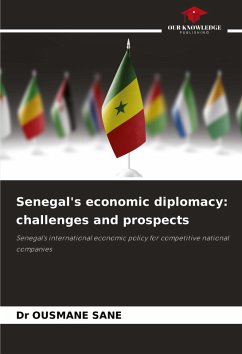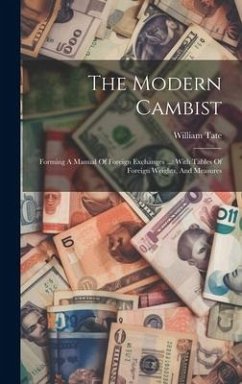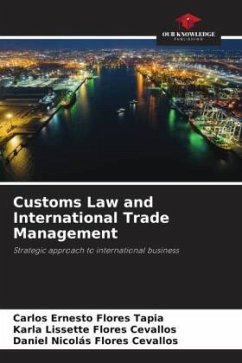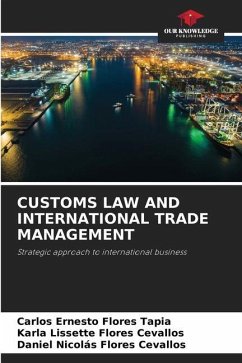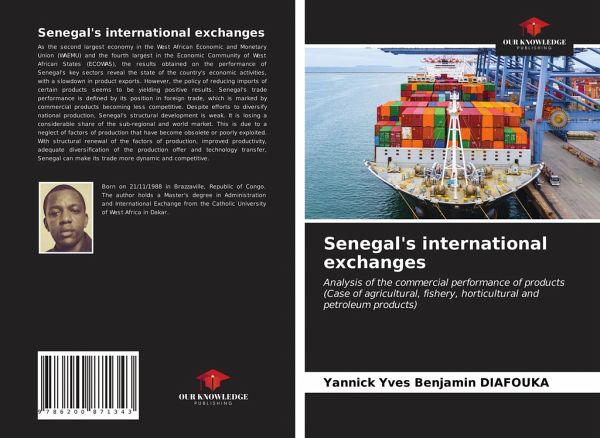
Senegal's international exchanges
Analysis of the commercial performance of products (Case of agricultural, fishery, horticultural and petroleum products)
Versandkostenfrei!
Versandfertig in 1-2 Wochen
18,99 €
inkl. MwSt.

PAYBACK Punkte
9 °P sammeln!
As the second largest economy in the West African Economic and Monetary Union (WAEMU) and the fourth largest in the Economic Community of West African States (ECOWAS), the results obtained on the performance of Senegal's key sectors reveal the state of the country's economic activities, with a slowdown in product exports. However, the policy of reducing imports of certain products seems to be yielding positive results. Senegal's trade performance is defined by its position in foreign trade, which is marked by commercial products becoming less competitive. Despite efforts to diversify national ...
As the second largest economy in the West African Economic and Monetary Union (WAEMU) and the fourth largest in the Economic Community of West African States (ECOWAS), the results obtained on the performance of Senegal's key sectors reveal the state of the country's economic activities, with a slowdown in product exports. However, the policy of reducing imports of certain products seems to be yielding positive results. Senegal's trade performance is defined by its position in foreign trade, which is marked by commercial products becoming less competitive. Despite efforts to diversify national production, Senegal's structural development is weak. It is losing a considerable share of the sub-regional and world market. This is due to a neglect of factors of production that have become obsolete or poorly exploited. With structural renewal of the factors of production, improved productivity, adequate diversification of the production offer and technology transfer, Senegal can make its trade more dynamic and competitive.



